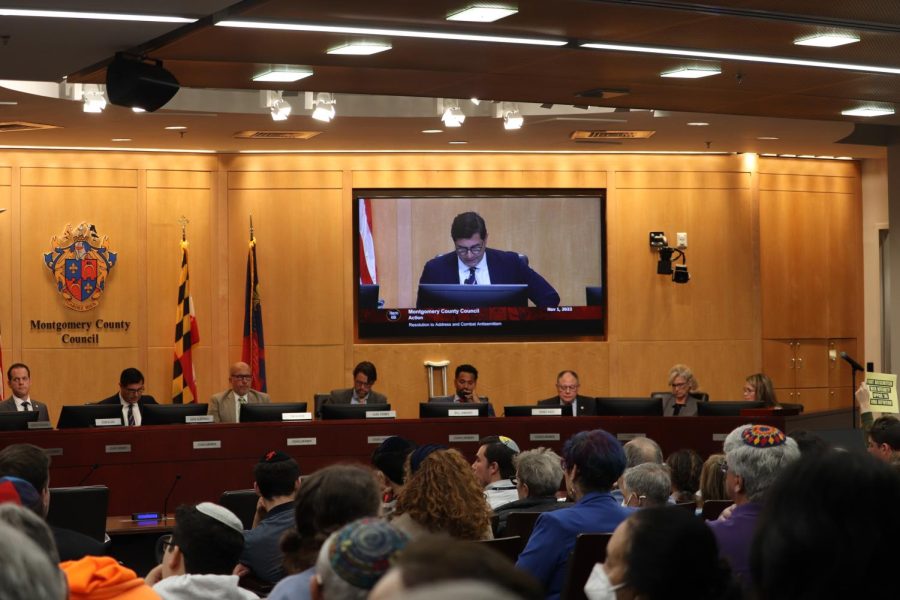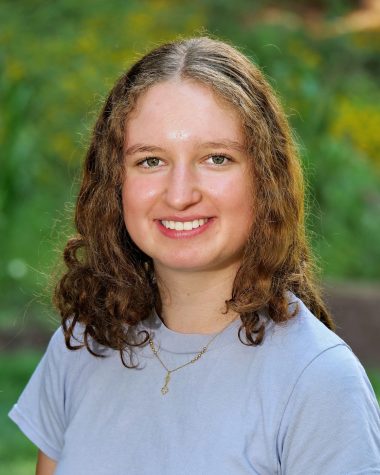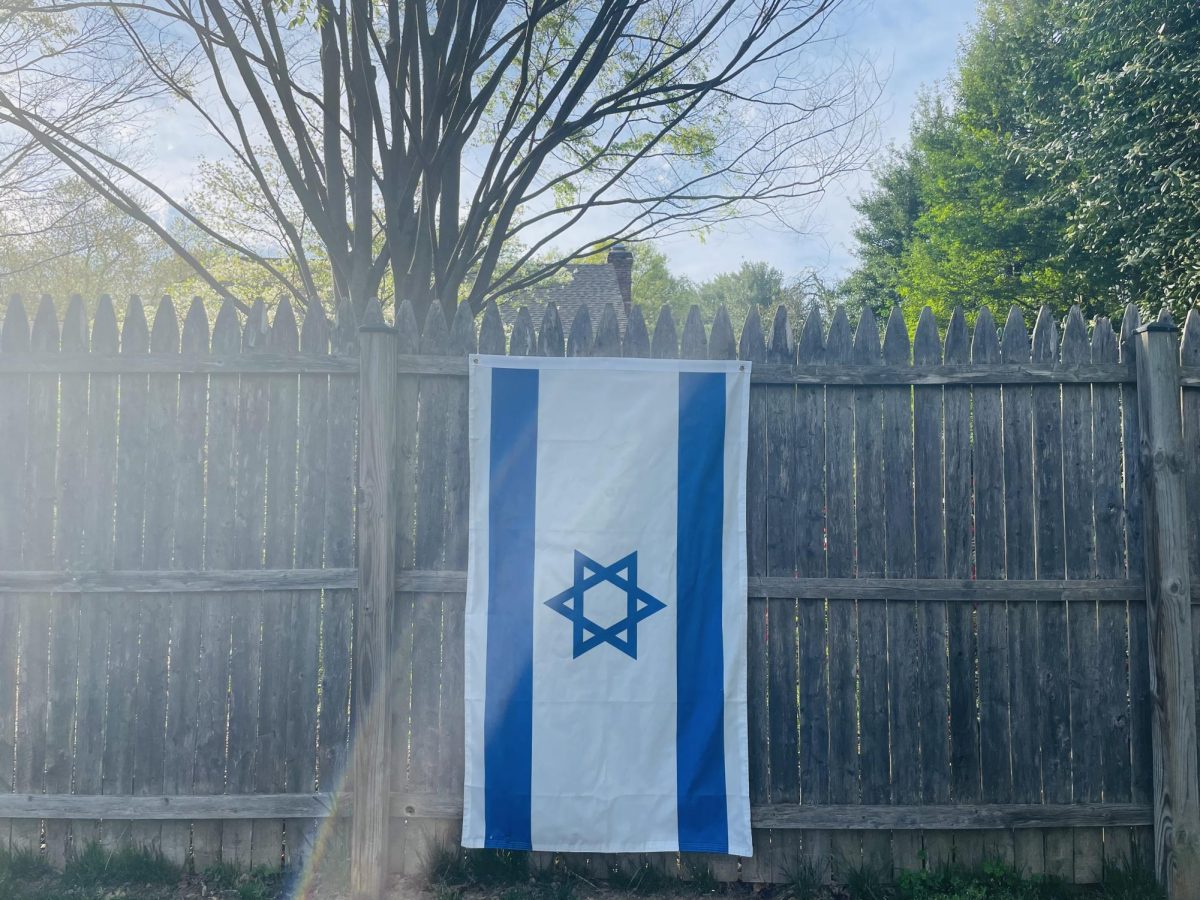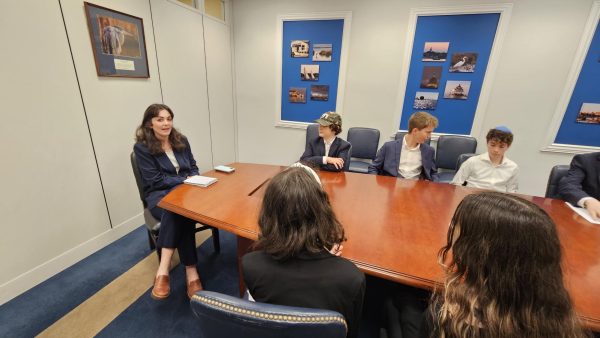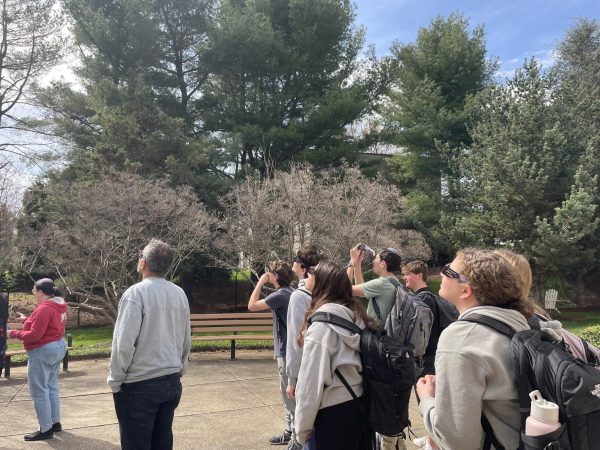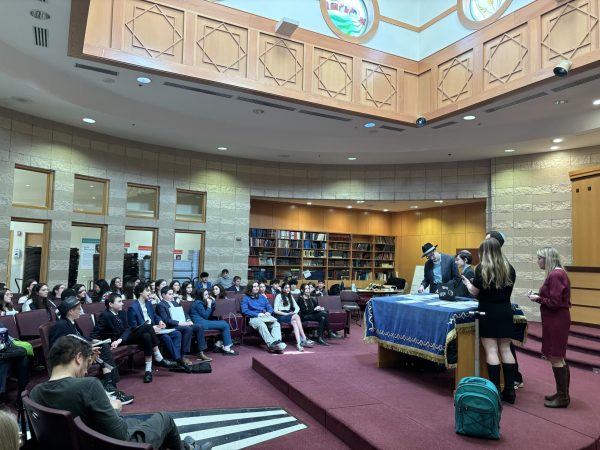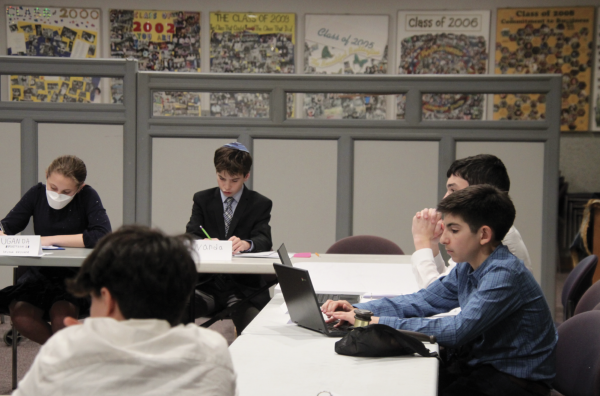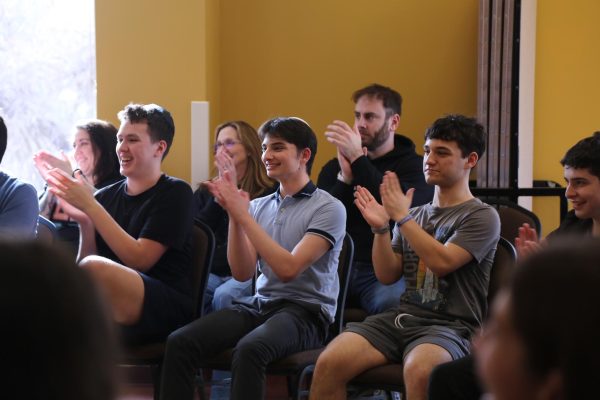Class takes field trip to witness local government response to antisemitism
The Montgomery County Council discusses a resolution regarding the definition of antisemitism.
November 9, 2022
The Montgomery County Council took a step towards combating antisemitism last week, a step that some CESJDS students were able to witness in person.
On Nov. 1, the council voted on a new non-binding resolution reaffirming the county’s commitment to combating antisemitism, accepting the working definition of antisemitism from the International Holocaust Remembrance Alliance (IHRA).
Jewish History teacher Dr. Dan Rosenthal took his period 9 “History of Modern Israel” class, which overlapped with the hearing, on a last-minute field trip to see how local government works.
“In the last few years, some organizations have worked to create a definition of antisemitism and that is really where the complexity of this issue is,” Rosenthal said. “We all know generally what antisemitism is, but where the lines are in terms of antisemitic belief and conduct and where that begins and ends is less clear.”
The resolution was non-binding, meaning it has no force of law, but instead it was a public statement from the county council stating that they acknowledge the rise of antisemitism in the county and they stand to fight against it.
Council President Gabe Albornoz expressed this further stating that in Montgomery County, 85% of religious-biased incidents were antisemitic in nature despite Jewish residents only making up 10% of the population.
“It is certainly a political response by the county council but any resolution that helps foster public understanding of the rise of antisemitism and the threats of antisemitism is beneficial in educating the public,” Rosenthal said.
Education is central to understanding the resolution as there is no clear separation between antisemitism and anti-Zionism. Junior Nate Shemony, who attended the trip, has seen firsthand how criticism of Israel has been used to be antisemitic.
“I think [the resolution] adds important significance to what antisemitism is because a lot of people in this country use anti-Zionism as an excuse to be Antisemitic and we need to draw that line,” Shemony said. “Personally, I think that if you want to criticize Israeli government or policies, that’s acceptable, but there is a line to be drawn when you deny the Jewish people the existence to Israel – which is antisemitism.”
During the hearing, the audience was quite divided over the resolution, more specifically over the IHRA definition. According to Rosenthal, many opposers felt that this definition was intended to silence criticism of Israel. While most protesters held up yellow signs with slogans such as “IHRA makes me feel less safe” to demonstrate their opposition, one person was escorted out for interrupting the progression of the hearing.
Junior Daniel Simon stood among representatives from the Jewish Community Relations Council of Washington DC. This organization strongly advocated for this resolution and pushed for it to be passed.
“A member from the JCRC was standing next to me in the room and he said jokingly, ‘I’m glad that you are here because you are going to take my spot when I retire from this job.’ That kinda hit me as, ‘Wow, this is important’ and even though this resolution is non-binding, it is important that we were there and it was passed, even if it was just to acknowledge antisemitism,” Simon said.
While this is just a small step towards combating antisemitism, this trip allowed students the opportunity to learn about their place in the community and how their voices can be amplified on issues such as these.
“The trip was really important in that it was an amazing educational opportunity for our students to learn about the role of these types of resolutions, the role of local government in fighting antisemitism, but also just the role of local government and the county council in particular,” Rosenthal said.


